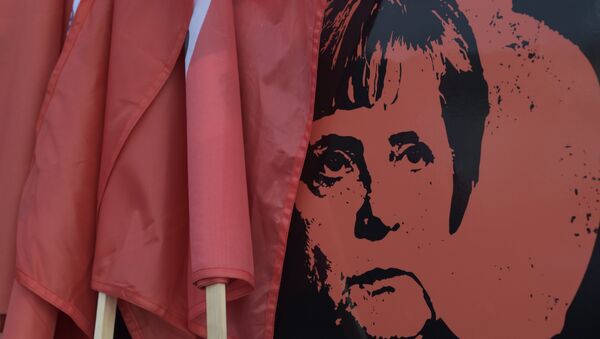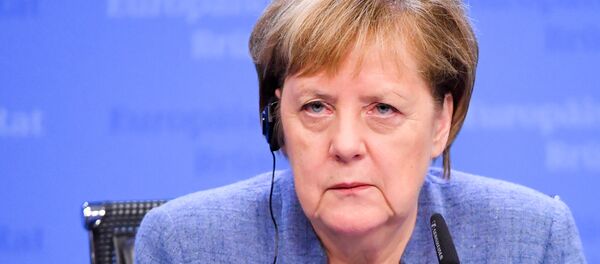The plan, dubbed AKK, was allegedly prepared in the event of a change of power within the SPD that could lead to the Social Democrats abandoning the coalition.
Earlier, the Free Democratic Party and the Greens voiced their support for a possible minority government.
Sputnik discussed this with Peter Schulze, professor of politics at Georg-August University in Göttingen, Germany.
Sputnik: In your view, how likely is there to be an actual plan that sees Angela Merkel leave and Kramp-Karrenbauer replace her?
Peter Schulze: Basically, since Merkel's decision to step down as the head of the Christian Democratic Party and the last two election results in Essen and Bavaria, every party must have done contingency plans, plans B, for unpredictable things that could happen.
She made it in the game, but now the situation is out of the hands of the Christian Democrats, because the Social Democratic Party is basically in free fall, down from 20% to 14%. And this means basically that if they are forced to leave the coalition in Berlin, then we'll have, of course, this unpredictable situation, which has not happened in German politics since 1949.
READ MORE: Germany's CDU Already Has Plan for Merkel's Midterm Resignation — Report
One possibility is, of course, to form a minority government, supported by the Greens and by the Liberals; but why should the Greens support a minority government when they are rising in voters' respect and esteem. They're now figuring around 20%, and they would become a leading member of a new government.
So I think to have a minority government, if it comes to it, is only a short-term solution, maybe for a couple of months and then we would have new elections. But both leading people's parties, that means Christian Democrats and the Social Democrats, are fearing new election.
We're in a very deep dilemma and I think this is recognized in Berlin by all the parties and the only successful winner of a new election process would be the Greens, and then they would form basically a black-green government, that means Christian-Democratic and Greens; and the coalition may be supported by the Liberals, which is not clear, because the Liberals are fighting and struggling to the same constituency as the Greens.
I don't think there will be a stepping down of Merkel from the government, because Kramp-Karrenbauer, who was an initial president of a tiny German Republic, the Saarland, is not really appraised as a leading strong political figure.
READ MORE: German Gov't Hasn't Changed Position on Nord Stream 2 After EU Resolution — Rep.
Sputnik: If Angela Merkel does resign, and it looks as though this is going the case, how will a new chancellor be elected?
Peter Schulze: You could bring into parliament a vote of no-confidence and then, this is entrenched in the German constitution, within a very short time period a new candidate must be elected as a chancellor. Of course, you need a majority vote in the German parliament. The majority vote would then mean basically not anymore the old traditional one, which is now in existence between the Social Democrats and the Christian Democrats, but, as I said, with the Greens.
This makes the German political processes at the moment very unpredictable, and I think that this is realized now in the leadership of the Christian Democratic Party. Merkel cannot leave the ship by just resigning, this is impossible; otherwise, there would be infighting and struggles within the Christian Democratic Party, which is split anyhow because of the last election of the chairmanship of the party.
Views and opinions, expressed in the article are those of Peter Schulze and do not necessarily reflect those of Sputnik



